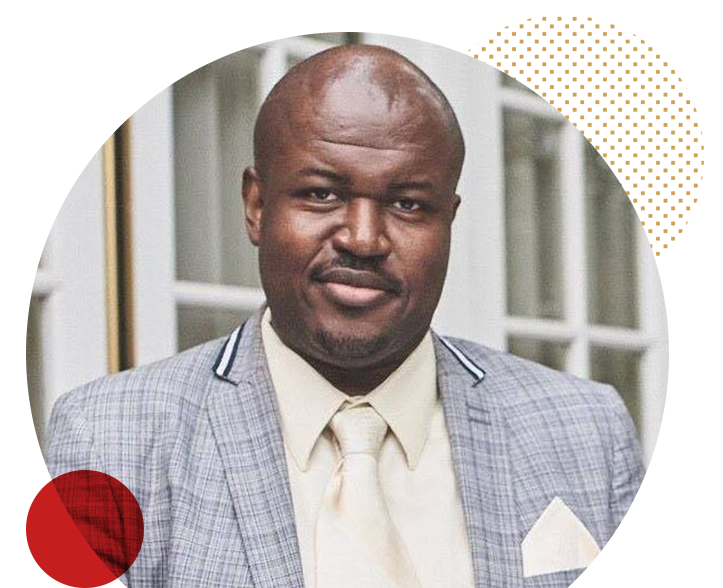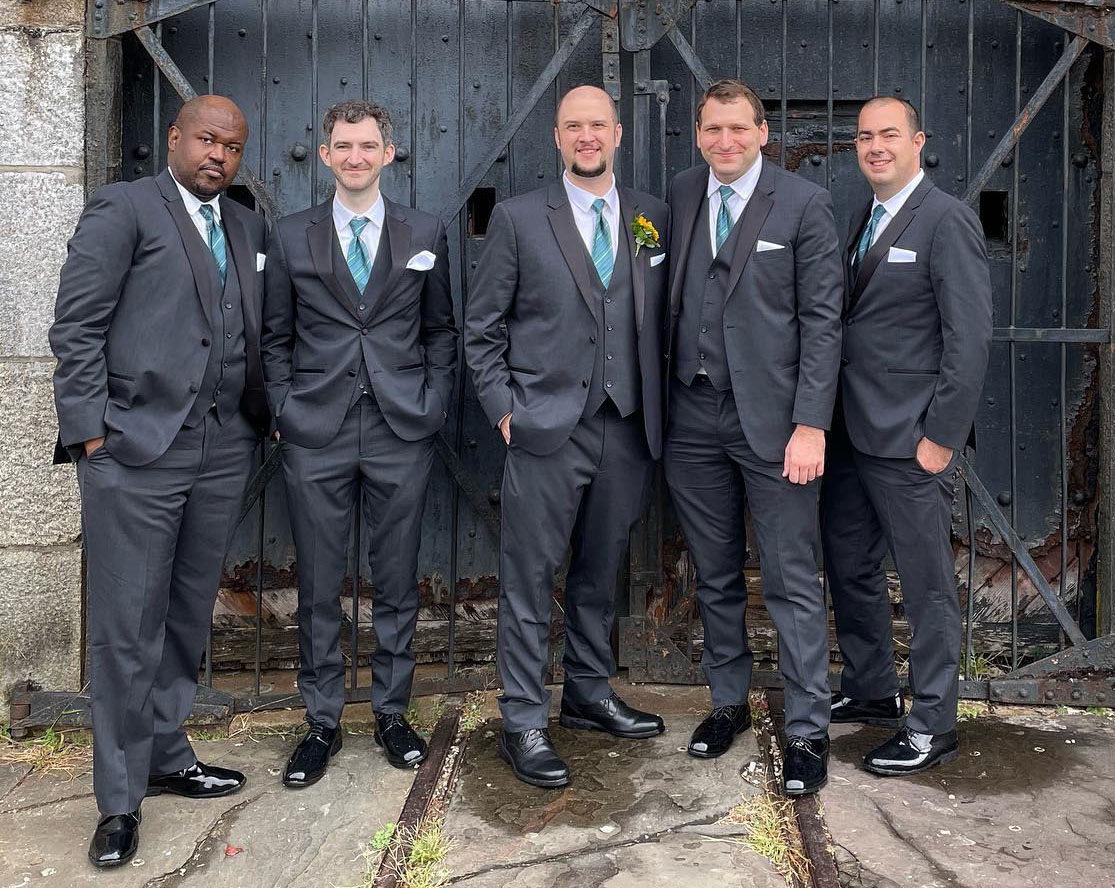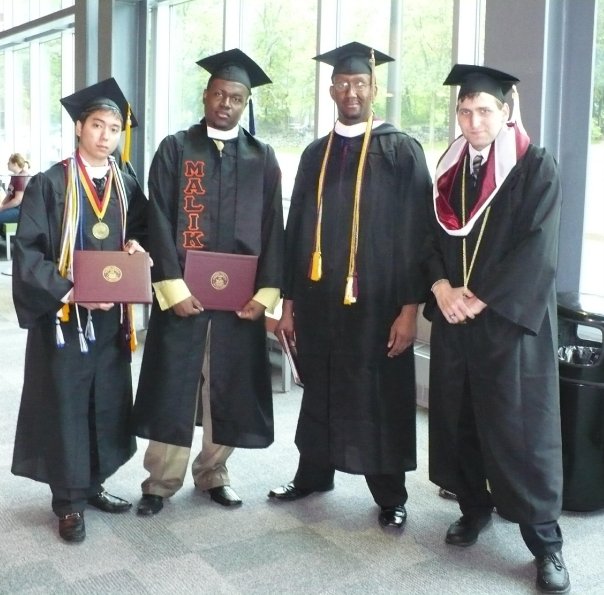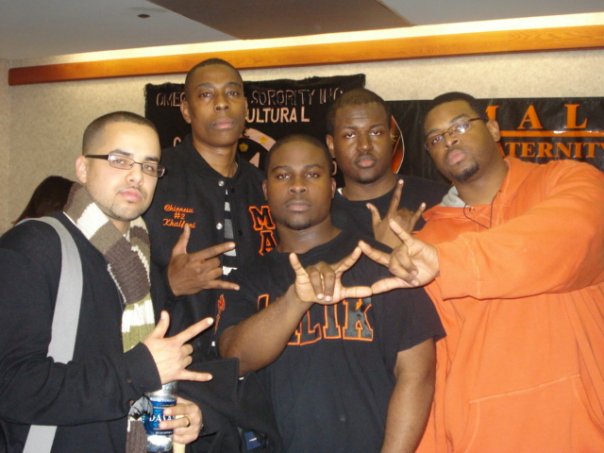Roadrunner Alumni
A Champion for Young People:
Meet Devon Mercurius ’08

By Ariana Rivera ’18 | Spring 2025
Devon Mercurius ’08 is a nonprofit leader with over a decade of experience educating and empowering young people. He is the senior director of programs at Reel Works, a Brooklyn-based nonprofit that mentors and supports underserved New York City youth through filmmaking and helps them launch successful careers in media and beyond.
Mercurius has led youth-focused education initiatives nationwide, securing funding, managing programs and forging partnerships to assist under-resourced students. His dedication to guiding young people in financial literacy, education and career readiness is shaped by his journey from Guyana to Brooklyn, reinforcing his belief in the power of education to transform lives.
Outside of work, he is a basketball and soccer fan, interested in technology and international relations, a foodie and a proud Ramapo alum.
Questions & Answers
with Devon Mercurius ’08

How do you use your political science degree skills in your work today?
Attending Ramapo College was a pivotal moment for me. Like many students, it was my first time living on my own—I was only 17. Coming from a predominantly immigrant West Indian community in Canarsie, Brooklyn to Mahwah, N.J. was a culture shock. I was in an unfamiliar environment, majoring in political science and constantly engaged in debates about ideals.
Political science challenges you to articulate your ideas and persuade others, even if they disagree. I developed this skill in the classroom and through student groups like Political Forum, College Democrats, MALIK Fraternity and Brothers Making a Difference. These experiences taught me how to build consensus, navigate different perspectives, communicate clearly and lead with empathy—skills I use daily in my career.
Today, my degree is central to my nonprofit work. Much of what I do involves bringing together multiple stakeholders to create spaces where young people can think critically, engage with their communities and collaborate. You can’t tackle significant issues alone, and that understanding was ingrained in me at Ramapo. The same principles that guided my studies now guide my work to empower and educate youth.
What inspired you to pursue nonprofit work in education?
I wouldn’t have attended Ramapo without the scholarship I received from Global Kids, a nonprofit I was involved with in high school that focused on leadership and community engagement. That scholarship didn’t just get me to college; it also gave me a built-in network of peers and mentors who helped me navigate a new environment.
I always knew I wanted to give back. While I wasn’t sure whether that would be through government, public service or community-based organizations, I knew I wanted to make an impact. When I got my first job in the nonprofit sector, I embraced the opportunity to provide others with the same access and support I had.
As a high schooler, I went on trips, engaged in debates, met prominent figures, gave speeches and hosted events—things I thought were “normal” until I realized how rare they were for students from underperforming schools like mine. That awareness fueled my commitment to pay it forward. Nonprofit work became the perfect avenue to live out my passion for public service.
What advice would you give someone interested in working in the nonprofit sector?
The nonprofit world is diverse. People often narrowly view it based on their experiences, but it spans education, finance, social work, international aid and more.
If you’re considering this field, think about what drives you. Nonprofit work requires you to be a jack-of-all-trades. That can be a drawback in most jobs, but it’s a necessity here. You’ll wear multiple hats and juggle responsibilities. The work won’t be fulfilling if you’re not passionate about the mission.
I chose nonprofit education because it connected to my journey of self-discovery, but I didn’t have it all figured out. Early in my career, I took a job at my high school and thought, “Oh no, I’m back here again. Did I make the right choice?”
Ultimately, I stayed because I found meaning in the work. Like any career, it’s essential to have clear goals. I was fortunate to have supervisors who supported my professional growth as I figured out my path. My advice is simple but accurate: let your passion guide you. Don’t shy away from opportunities just because they feel uncomfortable—that’s where real growth happens.
What is one of your favorite memories from Ramapo?
I don’t have just one favorite memory. What stands out most is the network I built. Sixteen years after graduating, I’m still close with the people I met at Ramapo—my roommates, fraternity brothers and even my roommates’ friends.
Those relationships matter because college is a time of transformation. My strongest memories aren’t tied to one event but to the people who shaped that period of my life.

Left to Right: Devon Mercurius, Jeremy Biggs, Michael Fiorelli, Robert Venezia and Matt Hunt
What was your favorite course at Ramapo and why?
Any course taught by Dr. Walter Brown or Dr. Clifford Peterson. Peterson, who also led Model United Nations, made his classes dynamic and interactive. In one, I role-played as the President of the United States, which was an eye-opening experience, especially before Barack Obama’s presidency.
I also loved U.N. simulations, where we debated global issues and learned how diplomacy works behind the scenes. Professor Brown’s classes, on the other hand, pushed me to think critically about world events and media representation. His thoughtful approach encouraged deep analysis.
These classes were fun, insightful and formative in shaping how I approach problem-solving and critical thinking today.
Who at Ramapo influenced you the most?
Debra Stark from the Career Center had a significant impact on me. She helped me think critically about life after college and introduced me to possibilities I hadn’t considered. Her guidance made my transition to the workforce smoother.
Dr. Jennifer Mazza was also influential. Her senior year lecture course was memorable, and the internship I took through her class at Transportation Alternatives gave me real-world experience.
CA Facilities Manager Paul Pittman was another mentor. As a young Black man on campus, seeing someone with a similar background who had achieved success made my aspirations feel more attainable. He provided a safe space to talk about college life challenges. He changed my life, and I am forever grateful.
Are you currently working toward a professional goal?
Right now, I’m focused on helping my organization navigate rapid expansion. We’re scaling up programs, growing staff, broadening our reach and opening new office space, which is a lot to manage at once.
On a practical level, I’m considering project management and effectively executing these changes. More importantly, I want to ensure students remain at the center of it all. Growth isn’t just about expansion—it’s about increasing student access, support and opportunities.
What is one of your favorite projects you’ve worked on?
Two projects stand out.
At Reel Works, I’m proud of the Dual Language Documentary Lab we launched this summer. Bilingual students in Spanish and English created powerful documentaries about their lives and communities. Seeing their stories on screen and the emotional reactions from families and staff reminded me of how impactful storytelling can be.
At Invest in Girls, I helped lead a national personal finance education program for high school girls. We partnered with financial firms each year to run Exploring Finance, a program where students spent a week at firms like Citibank and Brown Advisory. They toured offices, practiced career readiness skills and met finance professionals. For many, it was their first exposure to the industry.
Watching those students go on to major in finance and thrive in their careers was incredibly rewarding. Both projects embody what I love about nonprofit education—creating lasting impact and witnessing the results in real time.


